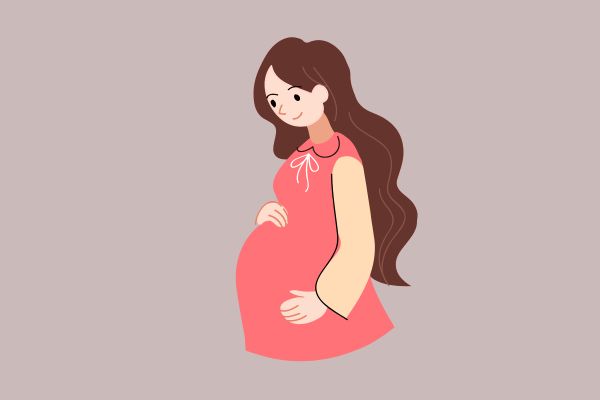Does an enlisted soldier in Vietnam enjoy maternity benefits when his wife gives birth?
What are the conditions for male employees to enjoy maternity benefits in Vietnam?
According to Article 31 of the Law on Social Insurance 2014, the provisions are as follows:
Conditions for enjoying the maternity benefits
1. Employees shall be covered by the maternity benefits in one of the following cases:
a/ Pregnant female employees;
b/ Female employees giving birth to children;
c/ Female employees as surrogate mothers and intended mothers;
d/ Employees adopting under-6-month children;
dd/ Female employees having intrauterine devices or employees taking sterilization measures;
e/ Male employees currently paying social insurance premiums whose wives give birth to children to children.
2. To enjoy the maternity benefits, employees defined at Points b, c and d, Clause 1 of this Article must have paid social insurance premiums for at least full 6 months within 12 months before childbirth or child adoption.
3. To enjoy the maternity benefits, employees defined at Point b, Clause 1 of this Article who have paid social insurance premiums for at least full 12 months and need to take a leave during pregnancy for pregnancy care as prescribed by a competent health establishment must have paid social insurance premiums for at least full 3 months within 12 months before childbirth.
4. Employees who fully satisfy the conditions specified in Clause 2 or 3 of this Article and terminate their labor contracts or working contracts or cease working before the time of childbirth or the time of adoption of under-6-month children are still entitled to the maternity benefits prescribed in Articles 34, 36 and 38, and Clause 1, Article 39, of this Law.
The provisions regarding the conditions for male employees to enjoy maternity benefits are as follows:
- Employees adopting children under 06 months of age;
- Employees taking sterilization measures;
- Male employees currently paying social insurance premiums whose wives give birth to children.
Thus, in addition to paying social insurance premiums and having a wife give birth, male employees may also enjoy maternity benefits when adopting a child under 06 months of age or taking sterilization measures.

Does an enlisted soldier in Vietnam enjoy maternity benefits when his wife gives birth?
What is the maternity leave period for male employees when their wives give birth?
According to Clause 2 Article 34 of the Law on Social Insurance 2014, the provisions on the leave period for childbirth are as follows:
Leave period for childbirth
...
2. Male employees currently paying social insurance premiums whose wives give birth to children are entitled to a paternity leave of:
a/ 5 working days;
b/ 7 working days, in case their wives undergo a surgical birth or give birth to children before 32 weeks of pregnancy;
c/ 10 working days, in case their wives give birth to twins; or additional 3 working days for each infant from the second;
d/ 14 working days, in case their wives give birth to twins or more infants and take childbirth operation.
The paternity leave period specified in this Clause must be within the first 30 days after the date of childbirth.
...
Therefore, male employees currently paying social insurance premiums whose wives give birth to children are entitled to a paternity leave of:
- 5 working days;
- 7 working days, in case their wives undergo a surgical birth or give birth to children before 32 weeks of pregnancy;
- 10 working days, in case their wives give birth to twins; or additional 3 working days for each infant from the second;
- 14 working days, in case their wives give birth to twins or more infants and take childbirth operation.
The paternity leave period specified in this Clause must be within the first 30 days after the date of childbirth.
Does an enlisted soldier in Vietnam enjoy maternity benefits when his wife gives birth?
According to Clause 1 Article 2 of the Law on Social Insurance 2014, the provisions are as follows:
Subjects of application
1. Employees being Vietnamese citizens shall be covered by compulsory social insurance, including:
a/ Persons working under indefinite-term labor contracts, definite-term labor contracts, seasonal labor contracts or contracts for given jobs with a term of between full 3 months and under 12 months, including also labor contracts signed between employers and at-law representatives of persons aged under 15 years in accordance with the labor law;
b/ Persons working under labor contracts with a term of between full 1 month and under 3 months;
c/ Cadres, civil servants and public employees;
d/ Defense workers, public security workers and persons doing other jobs in cipher organizations;
dd/ Officers and professional army men of the people's army; officers and professional non-commissioned officers and officers and technical non- commissioned officers of the people's public security; and persons engaged in cipher work and enjoying salaries like army men;
e/ Non-commissioned officers and soldiers of the people’s army; non- commissioned officers and soldiers on definite-term service in the people’s public security; army, public security and cipher cadets who are entitled to cost- of-living allowance;
g/ Vietnamese guest workers defined in the Law on Vietnamese Guest Workers;
h/ Salaried managers of enterprises and cooperatives;
i/ Part-time staffs in communes, wards and townships.
...
Besides, according to Article 30 of the Law on Social Insurance 2014, the provisions on coverage of maternity benefits are as follows:
Coverage of the maternity benefits
The maternity benefits covers employees defined at Point a, b, c, d, dd and h, Clause 1, Article 2 of this Law.
According to the above provisions, persons performing military service are not subjects to the maternity benefits when their wives give birth.
LawNet